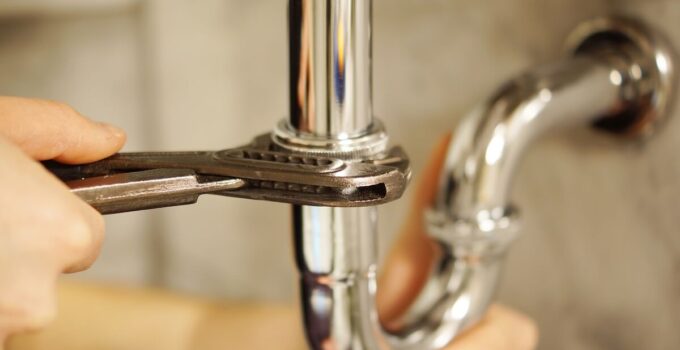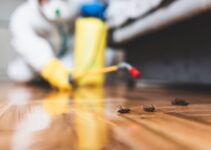Your home’s plumbing system may seem complex, but understanding the basics is crucial for ensuring everything runs smoothly. At its core, plumbing involves the movement of water in and out of your home with the help of pipes, valves, and fixtures. Each plumbing fixture is connected to a network of pipes transporting clean water and wastewater from your shower to your kitchen sink.
Identifying basic plumbing components and troubleshooting common issues are essential for maintaining your home’s plumbing system and avoiding costly plumbing repair. Whether you are a homeowner or renter, learning about home plumbing will save you time, money, and stress.
Common Plumbing Issues You Might Encounter
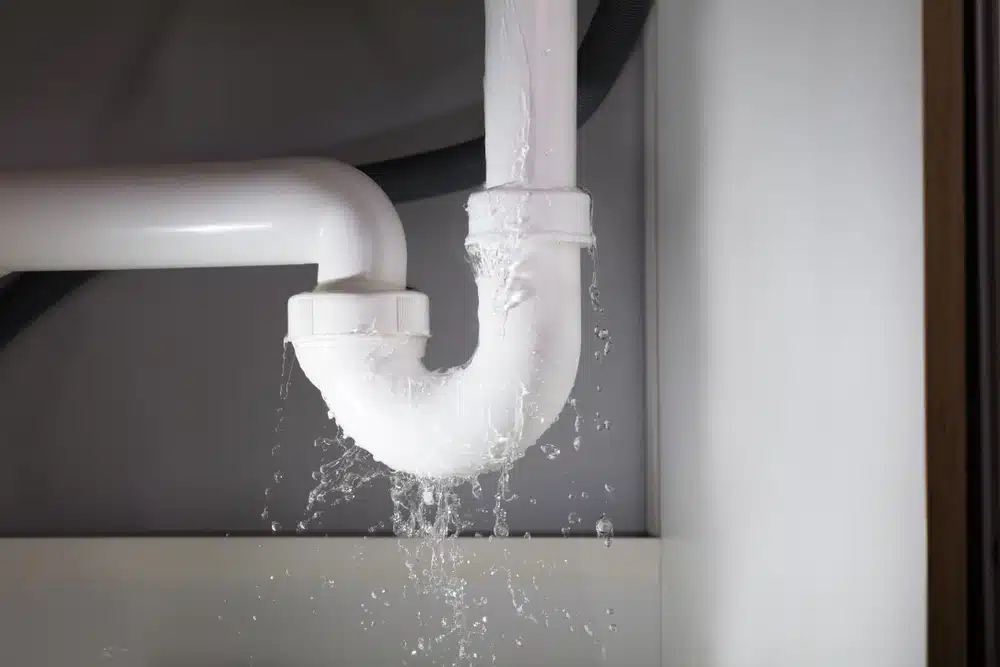
Source: shamrockplumbing.net
While some plumbing problems require the expertise of a professional plumber, others can be easily fixed with a little know-how and the right tools. Here are some common plumbing issues that you might encounter in your home:
Clogged drains: This is one of the most common plumbing problems, and it can happen in any drain, from your kitchen sink to your shower. A plunger is usually the first tool to use when unclogging a drain, but if that does not work, you may need to use a plumbing snake or call a plumber.
Leaky faucets: A leaky faucet not only wastes water and increases your utility bill, but it can also be an annoying sound. A worn-out washer is usually the culprit, and replacing it is a simple fix.
Running toilets: A running toilet can waste hundreds of gallons of water daily. This is often caused by a damaged flapper or fill valve, which can be easily replaced.
Low water pressure: If your water pressure seems weaker than usual, there could be an issue with your pipes or fixtures. Check for any clogs or mineral buildup, and if the problem persists, it may be best to consult a plumber.
Burst pipes: In colder climates, pipes can freeze and burst, causing extensive damage. If you suspect a burst pipe, immediately turn off the water supply and call a plumber to fix the issue.
The Essential Plumbing Tools Every Homeowner Should Have
While some plumbing issues may require the help of a professional, having a few essential tools on hand can save you time and money when dealing with minor problems. Here are some must-have plumbing tools for every homeowner:
Plunger: A plunger is useful for unclogging drains and toilets.
Plumbing snake: Also known as a drain auger, this tool clears stubborn clogs in drains.
Pipe wrench: This adjustable wrench is essential for tightening or loosening pipes and fittings.
Adjustable pliers: These are useful for gripping and turning pipes, nuts, and bolts.
Teflon tape: Also known as plumber’s tape, this thin white tape creates a watertight seal on threaded pipe fittings.
Caulking gun: A caulking gun is used to apply silicone or caulk around fixtures to prevent leaks.
Plumbing snake: This tool is essential for clearing out clogs in toilets and is longer than a regular plumbing snake.
Preventing Plumbing Problems: Maintenance Tips for Homeowners
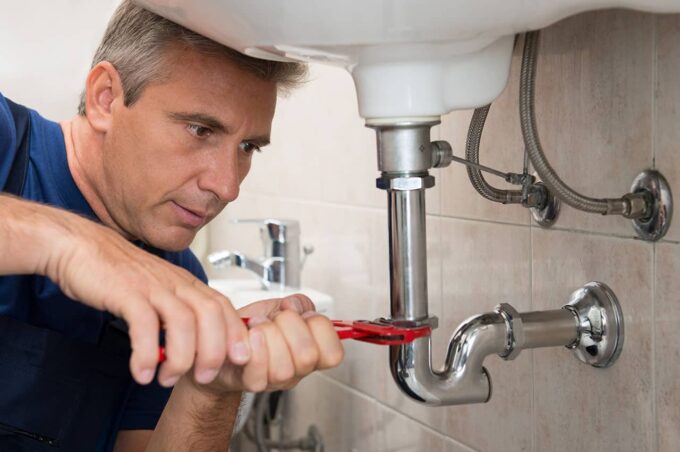
Source: highpriorityplumbing.com
Prevention is the best approach to avoiding plumbing issues. Here are some maintenance tips for homeowners:
Regularly check for leaks: Check for leaks in your faucets, showerheads, and pipes. Fixing a small leak now can save you from larger repairs in the future.
Avoid putting grease down drains: Grease may seem liquid when hot but solidifies when it cools, causing clogs in your pipes.
Use drain covers: Placing a drain cover over your shower and sink drains can prevent hair and other debris from clogging.
Flush with care: Avoid flushing anything other than toilet paper down the toilet to prevent clogs. This includes wipes, feminine hygiene products, and cotton balls.
Insulate your pipes: Insulating them can prevent them from freezing and bursting in colder climates.
Schedule regular maintenance: Consider hiring a professional plumber to perform routine maintenance checks on your plumbing system. This can help catch any potential issues before they become major problems.
DIY Plumbing: Safety Measures and Useful Tips
If you decide to tackle a plumbing issue yourself, it is crucial to prioritize safety. Here are some safety measures and tips to keep in mind:
- Always turn off the main water supply before attempting any repairs.
- Wear protective gear such as gloves and goggles when working with chemicals or tools.
- Follow instructions carefully when using drain cleaners or other chemicals.
- Be cautious when using tools; always read the manuals before use.
- Keep children and pets away from the work area to avoid accidents.
- If you are unsure or uncomfortable with any step of the process, do not hesitate to call a professional plumber for assistance.
Handling minor plumbing issues can be simple and cost-effective, considering these safety measures. However, leaving more significant and potentially hazardous problems to the professionals is always best.
When to Call a Professional Plumber: Recognizing Your Limits
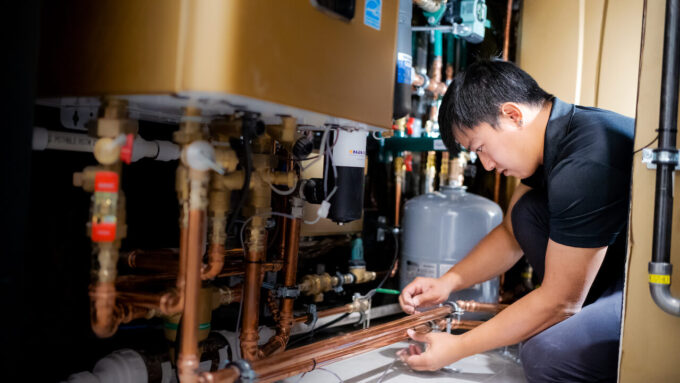
Source: getjobber.com
While some plumbing issues can be fixed with the right tools and knowledge, sometimes it is best to call a professional plumber. Here are some signs that you should seek help from a professional:
- If you have little to no experience with plumbing
- If the issue involves gas lines or major sewer lines
- If there is a significant amount of water damage
- If you have repeatedly tried to fix the issue with no success
- If the problem poses a safety hazard
If you encounter any of these situations, it is best to leave the job to a professional plumber with the experience and expertise to handle them safely and effectively. Remember, proper plumbing is essential for maintaining a safe and functional home, so always prioritize the safety of yourself and your property. So, it is always best to seek professional assistance if you are in doubt or feel overwhelmed by a plumbing issue.
Plumbing issues are common in most homes, but with the right tools and knowledge, you can handle many minor problems yourself. However, leaving the job to a professional plumber is best if you encounter more significant or hazardous issues. Remember to prioritize safety and regular maintenance to prevent plumbing problems in the future. With these tips, you can keep your home’s plumbing system in shape. Keep this guide handy for reference and to tackle any plumbing issue that may arise.

